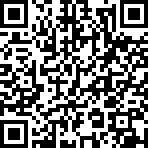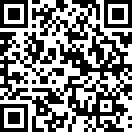 |
Case Series
Intestinal ischemia in COVID-19 patients: A case series
1 Surgical Fellow, Department of Abdominal Surgery, Algemeen Stedelijk Ziekenhuis Aalst, Merestraat 80, 9300 Aalst, Belgium
2 Surgical Staff, Department of Abdominal Surgery, Universitair Ziekenhuis Brussel, Laarbeeklaan 101, 1090 Jette, Belgium
3 Surgical Staff, Department of Thoracic Surgery, University Hospitals Leuven, Herestraat 49, 3000 Leuven, Belgium
Address correspondence to:
Tobias Van De Winkel
Eikstraat 76, 9300 Aalst,
Belgium
Message to Corresponding Author
Article ID: 100113Z06TW2023
Access full text article on other devices

Access PDF of article on other devices

How to cite this article
Winkel TVD, Janssens W, Messaoudi N, Schoneveld M, Stijns J, Eetvelde EV, Jansen YJL. Intestinal ischemia in COVID-19 patients: A case series. Case Rep Int 2023;12(1):1–8.ABSTRACT
Introduction: COVID-19 is associated with increased coagulability, resulting in thromboembolic complications, such as intestinal ischemia. Diagnosis of bowel infarction can be challenging due to the severity of illness and the laboratory changes associated with the COVID-19 infection itself.
Case Series: In a retrospective monocentric study, we performed an in-depth analysis of the clinical course of intestinal ischemia in COVID-19 patients. Biochemical analysis of coagulation status and predictors of ischemia was performed. We identified five patients with intestinal ischemia, between March 2020 and January 2021. Mean time-to-onset of intestinal ischemia from COVID-diagnosis was 31 days (range 16–56). Intestinal ischemia was confirmed by contrast-enhanced computed tomography (CT) scan. D-dimer, Fibrinogen, C-reactive protein (CRP), and lactate dehydrogenase (LDH) were elevated prior to the ischemic event, but no recurrent pattern could be distinguished in our case series. Lactate levels demonstrated a marked increase at the time of ischemia in our series. No consistent findings were made for prothrombin time (PT) and activated partial thromboplastin time (aPTT) and creatin kinase. Extent of bowel ischemia varied between limited to the ileocecal region (two patients), additional ischemia of small and large bowel (two patients) and extensive ischemia of entire intestinal tract (one patient). Four patients (80%) required an ileostomy. Planned relook surgery was performed in three patients (60%). Three (60%) patients died.
Conclusion: In the five days prior to an intestinal ischemic event in COVID-19 patients, we did not identify a clear pattern in commonly used markers for coagulation status and ischemia. However, lactate levels showed a recurrent pattern of clear increase leading up to the ischemic event and rapid normalization after surgery. Unfortunately, our patient numbers were too small to draw definitive conclusions.
Keywords: Bowel ischemia, COVID-19, Intestinal ischemia
SUPPORTING INFORMATION
Author Contributions
Tobias Van De Winkel - Substantial contributions to conception and design, Acquisition of data, Analysis of data, Interpretation of data, Drafting the article, Revising it critically for important intellectual content, Final approval of the version to be published
Ward Janssens - Substantial contributions to conception and design, Acquisition of data, Revising it critically for important intellectual content, Final approval of the version to be published
Nouredin Messaoudi - Substantial contributions to conception and design, Acquisition of data, Revising it critically for important intellectual content, Final approval of the version to be published
Martijn Schoneveld - Substantial contributions to conception and design, Acquisition of data, Revising it critically for important intellectual content, Final approval of the version to be published
Jasper Stijns - Substantial contributions to conception and design, Acquisition of data, Revising it critically for important intellectual content, Final approval of the version to be published
Ellen Van Eetvelde - Substantial contributions to conception and design, Acquisition of data, Revising it critically for important intellectual content, Final approval of the version to be published
Yanina JL Jansen - Substantial contributions to conception and design, Analysis of data, Interpretation of data, Drafting the article, Revising it critically for important intellectual content, Final approval of the version to be published
Guaranter of SubmissionThe corresponding author is the guarantor of submission.
Source of SupportNone
Consent StatementWritten informed consent was obtained from the patient for publication of this article.
Data AvailabilityAll relevant data are within the paper and its Supporting Information files.
Conflict of InterestAuthors declare no conflict of interest.
Copyright© 2023 Tobias Van De Winkel et al. This article is distributed under the terms of Creative Commons Attribution License which permits unrestricted use, distribution and reproduction in any medium provided the original author(s) and original publisher are properly credited. Please see the copyright policy on the journal website for more information.





